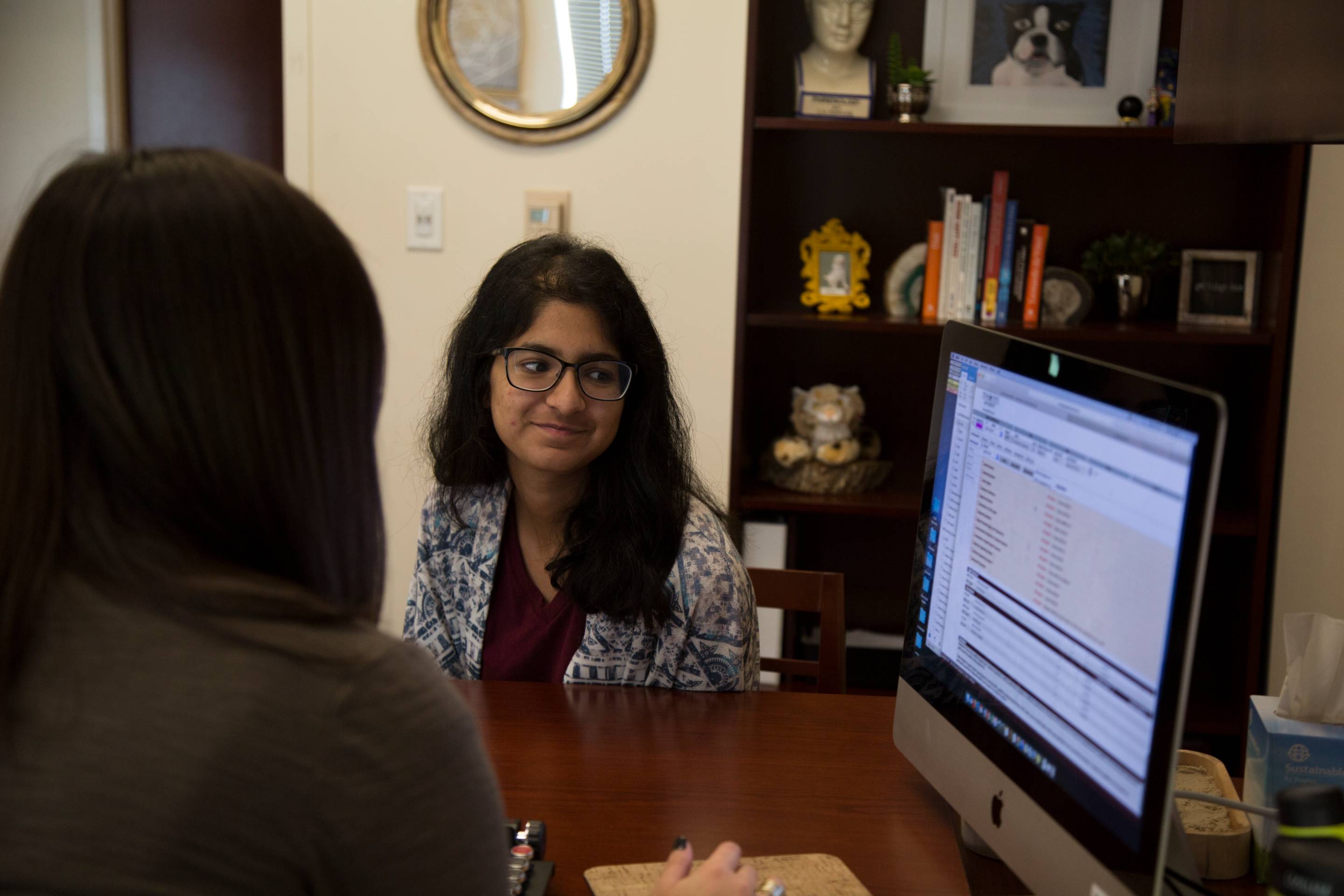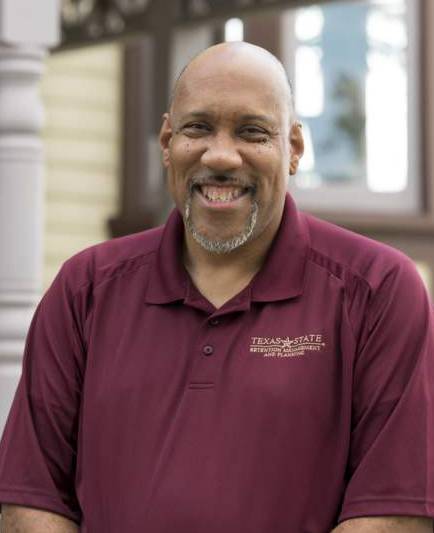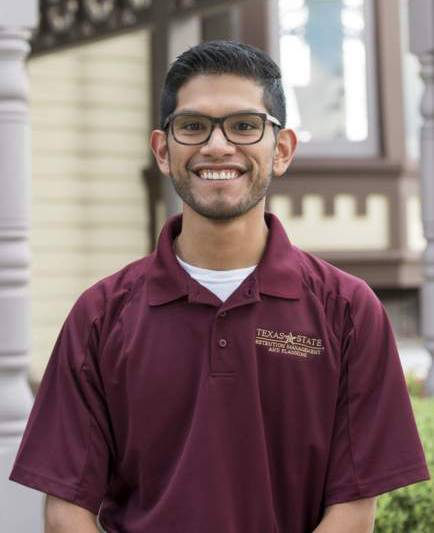Bobcat Bond - Keeping the sophomore slump away
Julie Cooper | December 13, 2018

When it comes to attaining college success, sometimes a mentor is a difference maker. And one Texas State mentoring program has been retooled to better target students who are among those who need it most.
The Bobcat Bond is a mentoring program to assist second-year and new transfer students at Texas State. While the PACE (Personalized Academic and Career Exploration) Center is geared to incoming freshmen, “Bobcat Bond: Your Connection to Success,” is for the student who no longer lives on campus, transferred from community college or another university, or just someone who needs connections for successful degree completion.
Formerly known as the Mentoring Program, Bobcat Bond is under the direction of Terence Parker, associate director of Retention Management & Planning. “We try to help them avoid what we call the sophomore slump,” he says.
Parker is assisted by Miguel Arellano Arriaga, coordinator of Retention Management & Planning, Alex Patlan, a graduate assistant, and 103 mentors. The mentors consist of (peer) students, faculty and staff. Currently, there are 119 mentees in the program. The Bobcat Bond mission is to increase student retention by providing opportunities from mentors who serve as coaches, role models, advisers, guides and referral agents. Students may find academics are a bit harder, more rigorous and time management has become more essential. Parker explains that some students may have difficulty finding their identity on campus.


Parker explains that in their first year, freshmen live and dine on campus and have a resident assistant (RA) or hall director who can serve as their mentor. Because students move off campus after their first year, there was a concern over keeping students engaged. In addition, Parker says a 2010 university survey found that transfer students had some of the same problems as freshmen.
“They are overwhelmed and the one thing they want is connections,” Parker says. “How do (they) find new friends (when) their social capital is back at their previous institution or high school? How do (they) connect to resources?”
Under the program, mentors and mentees are matched up and asked to contact each other within 48 hours. There is an orientation to get started and other events during the semester. Primarily, the participants make their own schedule.
“I’ve had a lot of mentors who have guided me along the way and I understand the importance of having someone that you can talk to,” says Devan Reynolds, a Texas State Alumnus who was a part of the program during her collegiate years and is credited with coming up with the name Bobcat Bond. “That is why being a mentor was so important to my heart. I wanted to give back,” she adds.
Reynolds, a native of Dallas, didn’t know anyone when she arrived on campus as a freshman. While at Texas State she mentored six students, including some through her work as a PACE Academic Coach. She is among four students mentored by Parker.
Dr. Ruben Garza, associate professor in the Department of Curriculum and Instruction, has been a mentor since 2004. A 1977 graduate of Texas State, mentoring was the topic for his doctoral dissertation at The University of Texas at Austin and is one of his research areas. He says he likes to get together for lunch with his mentees to talk about what is going on and offer suggestions.
“They are all different and they have different needs,” Garza says. He previously mentored a young woman who was missing her home and family. In that case, he made time to meet with her weekly just to talk. “That’s why I like the program. It provides that opportunity so you can’t say ‘I didn’t know, I was lost, there was no one there.’ There is always someone there,” he says.
To be part of Bobcat Bond, as a mentee or mentor, visit: https://www.studentsuccess.txstate.edu/programs/bobcatbond.html
Share this article
For more information, contact University Communications:Jayme Blaschke, 512-245-2555 Sandy Pantlik, 512-245-2922 |